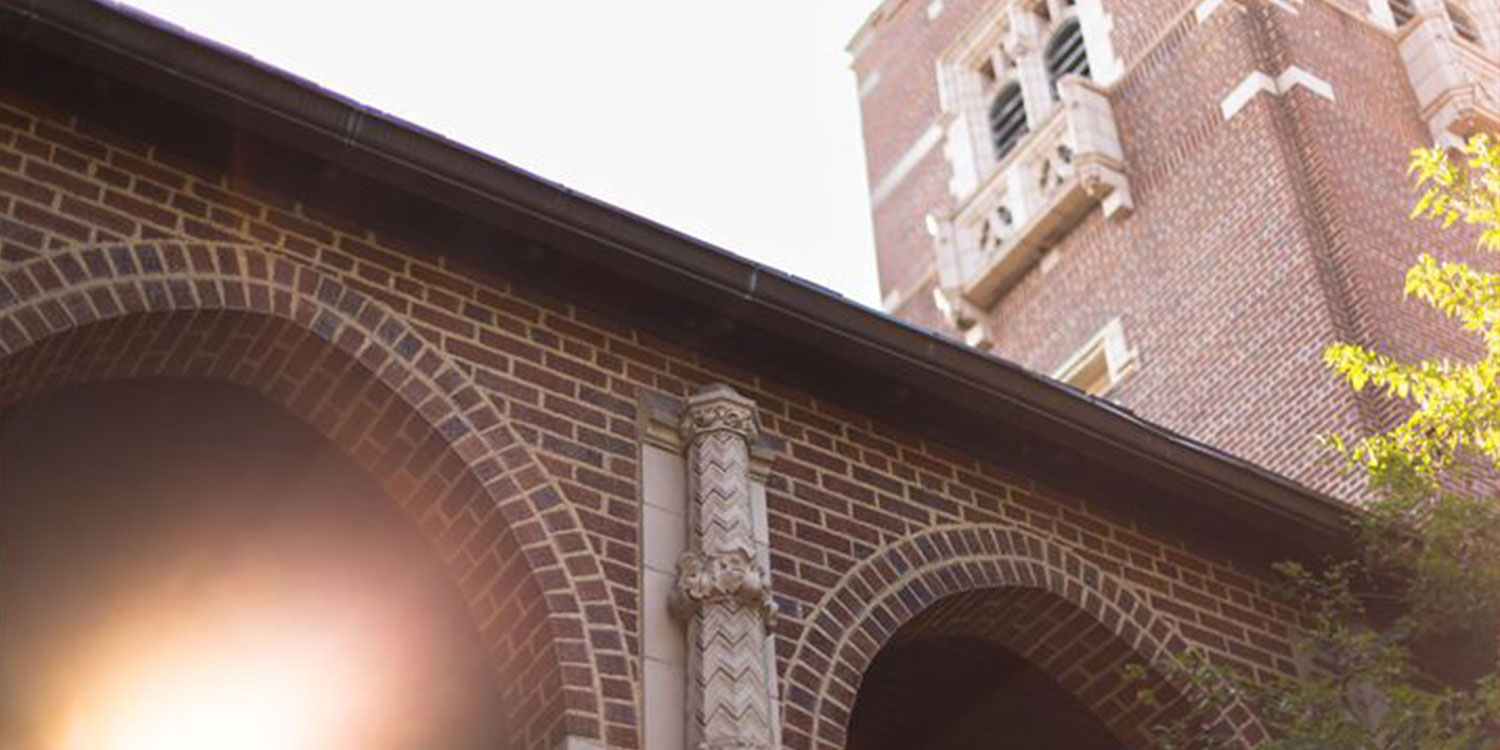By Cloud and Fire: Guided by God's Presence in Times of Change
The Red Sea, Rev. Leila Ortiz, and “Baptism in Muddy Waters” - October 31
“Then the LORD said to Moses, ‘Why do you cry out to me? Tell the Israelites to go forward. But you lift up your staff and stretch out your hand over the sea and divide it, that the Israelites may go into the sea on dry ground” (Exod 14:15-16; read the whole chapter HERE).
Last week, Rev. Leila Ortiz came to Trinity Days and taught us about estuaries. (If you have not had the pleasure of meeting Rev. Leila Ortiz, I highly recommend it. If you have not had the pleasure of learning from Rev. Leila Ortiz, I commend the experience wholeheartedly.)
She titled her presentation “Baptism in Muddy Waters,” and invited us to use the metaphor of an estuary as a guiding image for Lutheran baptismal theology. Estuaries, according to Ortiz, are a marvelous image for baptism in Lutheran theology. Filled with both life and death in equal measure, estuaries teem with potential for new life, even as they reek of death and decay. They are a mixture of salt and fresh water, neither purely of one type nor the other. But the most wonderful thing about estuaries, according to Ortiz, is that within an estuary, new life is fundamentally dependent on death. There is no new life without death in an estuary. In a similar way, there is no new life without death in baptism. The baptism to which we are called is one of death, Ortiz reminded us. It is only through that death that we are brought, finally, to new life. (I am failing to capture the power of Ortiz’s words and message. As I said before, do yourself a favor and find a way to learn from her.)
Since we have been dwelling in the book of Exodus together this year, my mind flew to the famous waters of Exodus, the Red Sea.
The Red Sea teemed with both life and death in equal measure: the lives of the Israelites, with their hearts in their throats and their feet pounding on the surf; the deaths of the Egyptians, embodied symbols of oppressive structures and out-of-control empire. In the world of the story, the life of the one hinges upon the end of the other, since Pharaoh has shown time and time again that no amount of persuasion – not even the loss of his own son – will daunt his pursuit of death.
The image of new life that is dependent on death stretches beyond the Red Sea. For the Israelites themselves, their new life cannot emerge without the death of their past identity in Egypt. There is no new life without the death of their control of this deity, this I AM, this terrible and glorious God. I wonder if they could feel that death working in and through them, even as they raced, panting, through the muddy, sea-floor puddles into a strange and new life.
One of Bishop Ortiz’s best points, in my opinion, is that death in an estuary is not always swift. It involves a process of decomposition. By extension, new life is not always swift. Think of the Israelites in the wilderness: the decomposition process took a full 40 years. (Some might argue they should have stewed a bit longer before being pulled from Sinai's pot). New life requires time. Only by willingly submitting to a process that cannot be rushed can new life emerge with fully-developed lungs, able to breathe the breath of the Spirit.
We here at Trinity are committed to submitting to this process of new life to which the Spirit has called us. If you are curious about what our decomposition looks like; if you wonder what new life is emerging; if you are curious about whether what is happening meets the marvelous mission of Trinity, I ask only one thing: come and see. Visit us. Call us. Attend this year’s Trout Lectures (April 23-24, 2026) and bask in the wisdom of the Rev. Traci Blackmon. Put next year’s Trinity Days on your calendar (Oct 1-2, 2026) and learn from the Rev. Dr. Mark Allan Powell. Or just stop by at one of our smaller events and set up a meeting with one of our faculty or staff. For that matter, come and attend a class! (If you’re looking for continuing education, auditing a seminary class is a wonderful way to gain skills or stay sharp.)
Wherever you are in your life or ministry, may your baptism in muddy waters, may your decomposition, and may your tentative first steps into new life be filled with all the wonder that the Spirit has to offer.
May Christ's blessings precede you,
Dean Wrenn
Trinity Lutheran Seminary at Capital University
